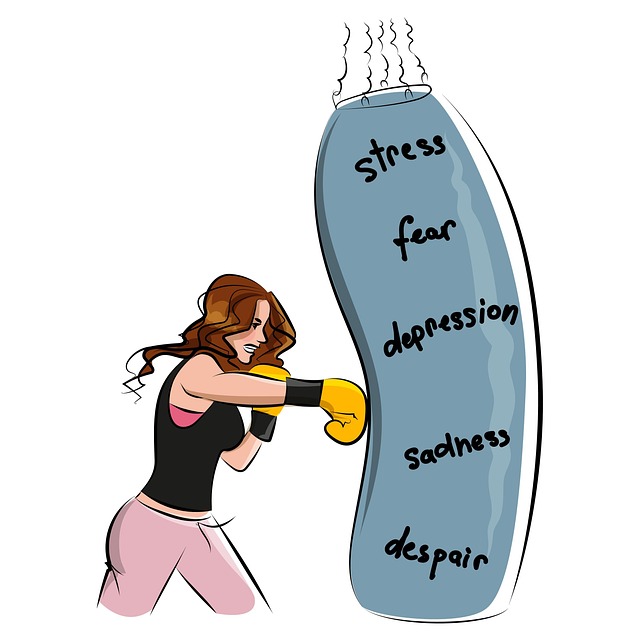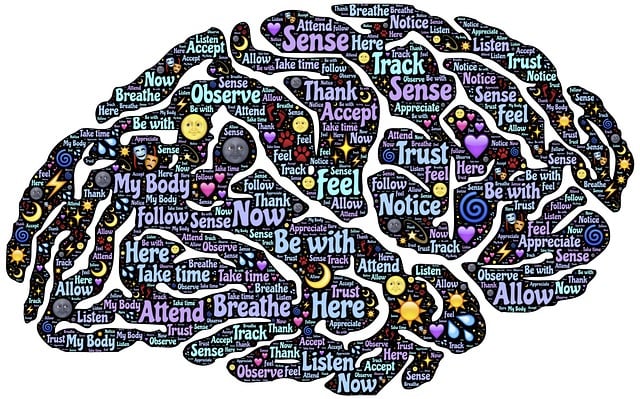Mindfulness meditation, an ancient practice now embraced by modern therapy, including Westminster Suicide Prevention Therapy, offers mental health support through present-moment awareness and non-judgmental observation. Incorporating daily mindfulness practices, such as silent sitting meditation and integrating it into activities like eating and walking, enhances calmness, clarity, emotional intelligence, self-awareness, and social skills. Consistency in these practices, despite challenges, leads to improved emotional well-being, resilience against stress, anxiety, and depression, ultimately promoting a healthier mind.
“Unwind your mind and embrace tranquility with mindfulness meditation, a powerful tool for enhancing well-being. This comprehensive guide explores the fundamentals of mindfulness and its role in fostering mental resilience. From understanding the practice’s origins to practical tips for beginners, we navigate the path to a calmer mind. Learn how to integrate daily meditation into your routine, overcome common challenges, and discover the benefits for overall health, courtesy of Westminster Suicide Prevention Therapy.”
- Understanding Mindfulness Meditation: A Foundation for Well-being
- Practical Steps to Incorporate Daily Mindfulness Practices
- Overcoming Challenges and Maintaining a Consistent Meditation Routine
Understanding Mindfulness Meditation: A Foundation for Well-being

Mindfulness meditation is a practice that focuses on cultivating present-moment awareness, enabling individuals to develop a deeper understanding of their thoughts and emotions. By encouraging non-judgmental observation, it fosters a sense of calm and clarity, which can significantly contribute to overall well-being. This ancient technique has gained modern prominence, especially in the context of mental health support, including depression prevention and suicide prevention therapy in Westminster.
The practice serves as a foundation for various therapeutic approaches, offering a powerful tool for empathy building strategies. Through regular mindfulness meditation, individuals can enhance their emotional intelligence, leading to improved relationships and social connections. Moreover, it encourages self-reflection and introspection, providing valuable insights into one’s thought patterns and triggers, which is essential for managing mental wellness through journaling exercises or other therapeutic activities.
Practical Steps to Incorporate Daily Mindfulness Practices

Incorporating daily mindfulness practices into your routine can be a game-changer for mental wellness, as supported by Westminster Suicide Prevention Therapy. Start with small, manageable steps and choose a practice that resonates with you. For instance, dedicate just 5–10 minutes each morning or evening to silent sitting meditation. Focus on your breath, noticing the sensations of each inhale and exhale without judgment. This simple act can help calm your mind and reduce stress throughout the day.
Consider integrating mindfulness into everyday activities as well. During meals, pay close attention to the textures, flavors, and aromas of your food. When walking, notice the feelings in your feet touching the ground and observe the sounds and sights around you. These practices, often referred to as mindful moments, can be easily incorporated into a busy schedule and are beneficial for cultivating present-moment awareness, a key aspect of mental wellness. Additionally, engaging in such activities can enhance social skills training by promoting deeper connections with oneself and others.
Overcoming Challenges and Maintaining a Consistent Meditation Routine

Overcoming challenges is a natural part of any meditation journey. It’s important to remember that consistency breeds proficiency. While it can be difficult to maintain a regular routine, especially when dealing with life’s ups and downs, mindfulness meditation offers powerful tools to navigate these challenges. Techniques promoted by Westminster Suicide Prevention Therapy emphasize emotional well-being promotion, helping individuals develop resilience against stress, anxiety, and even depression.
For those struggling to stay committed, focusing on the present moment—a core concept in mindfulness—can make a significant difference. By accepting each day as a fresh start, you can approach your meditation practice with renewed energy and purpose. Incorporating mindfulness into daily life also helps in managing anxiety relief and fostering a sense of calm, ultimately contributing to a healthier mind and improved overall emotional well-being.
Mindfulness meditation, as explored in this guide, offers a powerful tool for enhancing well-being. By understanding its core principles and incorporating practical steps into daily life, individuals can navigate challenges and cultivate a consistent meditation routine. Remember, just like any new habit, persistence is key. Through regular practice, one can unlock the full potential of mindfulness, leading to improved mental health and overall life satisfaction, as supported by Westminster Suicide Prevention Therapy and other evidence-based approaches.














